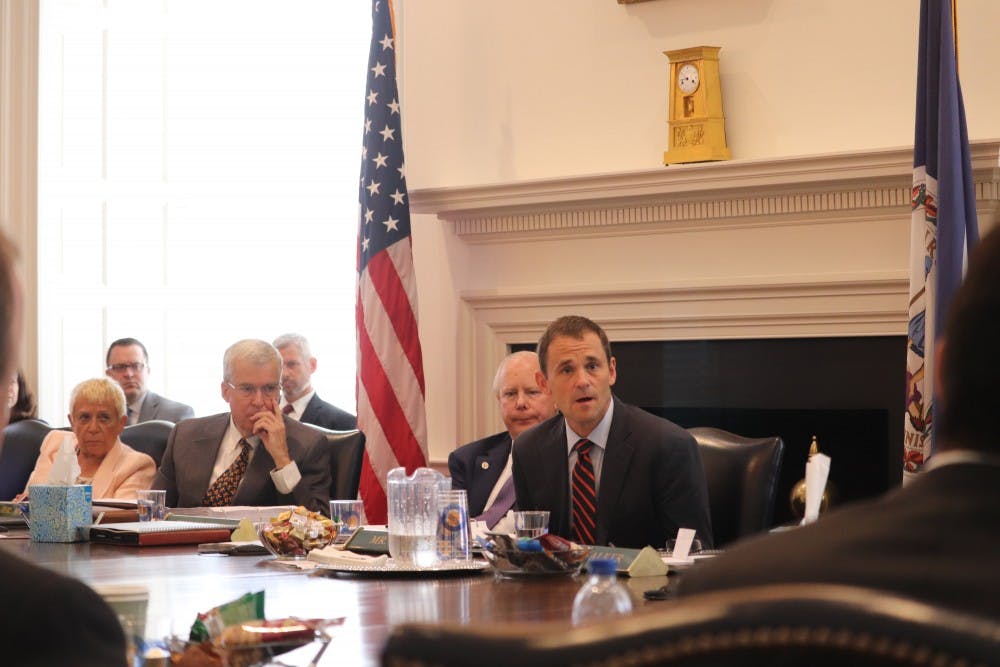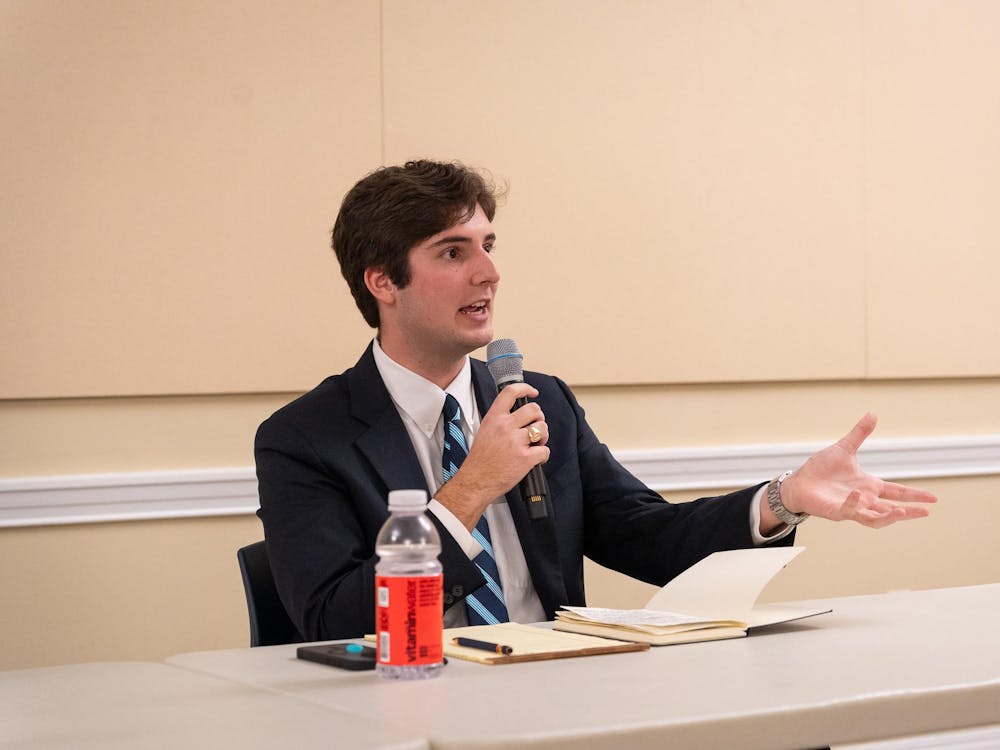The Board of Visitors endorsed President Ryan’s 10-year strategic plan at the meeting Friday. The plan features 10 initiatives with a focus on community, student-diversity development and research preeminence and was cultivated through a series of alumni, student and community engagements. It builds upon the work of former University President Teresa Sullivan’s 2013 Cornerstone Plan with an overall mission of building a “Good and Great University.”
Addressing the Board of Visitors, University President Jim Ryan commented on the overall nature of the on the goal of the plan’s goals and initiatives towards achieving that mission.
“They way to think about how these various pieces fit together is fairly straightforward,” Ryan said. “We should aspire to be the best public university in 2030, and one of the best in the world, whether public or private. Which is not to say anything about where we are right now but to be thinking about what is it going to take, in 2030, to be the best public university. My hypothesis is that it is going to take a university, and this one in particular, to be both great and good.”
The 2030 strategic plan describes community building initiatives such as creating on-Grounds residential communities where first- and second-year students will be required to live together.
“We will establish a series of residential communities that will house all first- and second-year students on Grounds,” the plan says, “and provide ways for third- and fourth-year students to stay connected to their residential communities. Providing students a meaningful opportunity to live and learn together in a diverse and inclusive community will help prepare them to live and lead in an increasingly diverse world.”
Derrick Wang, a fourth-year College student and Board of Visitors Student Member, noted that this residential reorganization would help solve difficulties first-year students face finding housing for their second-year, a process which typically begins as early as September.
“I think it also creates issues with relationships because having to sign a lease so early,” Wang said. “It’s a toxic combination of all the things that I think could be dangerous for a relationship — long-term commitments, spending money and having to reconcile different living styles. I think it really does help for students to have time to develop those relationships on-Grounds before they move out into the off-Grounds world.”
In addition to reorganizing the residential system, Ryan’s strategic plan emphasizes the need for public service in the University community. The plan states that he will “explore the feasibility of creating a loan-forgiveness program for undergraduate students who enter public service.”
The 2030 strategic plan also emphasizes student involvement in the international community in the “Citizen-Leaders for the 21st Century” initiative. This initiative includes the aim to provide all undergraduates with “at least one international experience before they graduate.”
Outside of the more insular University community, the 2030 strategic plan includes the “Good Neighbor” initiative, a movement focused on building a better relationship with the Charlottesville community.
“We will work collaboratively,” the plan says, “and with all due humility, with our community partners to address key challenges, including housing, living wages, local educational opportunities, and access to health care”
This plan follows the University’s commitment in March to provide all full-time employees with a living wage of $15 per hour by 2020. The minimum wage will increase from its current $12.75 per hour.
The plan also mentions an improved transportation system and an accessible community engagement office, both aimed at building a better relationship between the University and the Charlottesville community.
Beyond plans for community development, the 2030 strategic plan includes a commitment to diversity, particularly through supporting first-generation, low-income and underrepresented students. The initiative “SuccessUVA” aims to expand the financial aid program to enable more members of these groups to attend. “SuccessUVA” includes plans to “create an expanded Multicultural Student Center to support programming for our increasingly diverse student body.” The Multicultural Student Center is currently located in the basement of Newcomb Hall.
The 2030 strategic plan features academic goals beyond these aspects of community building and diversity. In the initiative “Pathways to Research Preeminence,” the University will follow through on academic infrastructure development, cross-discipline discovery and funding goals to encourage research.
The current draft of the 2030 strategic plan does not claim to be an exhaustive list of initiatives and programs the University will commit to in the next 10 years.
“There is great and important work that is not part of a new key initiative but is nonetheless vital to the University and critical to achieving our goals,” the plan states.
Ryan wrote in an email to the University community Friday that putting together a strategic plan for the future of the University was his “top priority” as president. “I hope you see it as both a reflection of your hard work, and as a roadmap for how we can make even more progress in the years ahead,” he wrote.
A final vote on the strategic plan is scheduled for August 2019.







